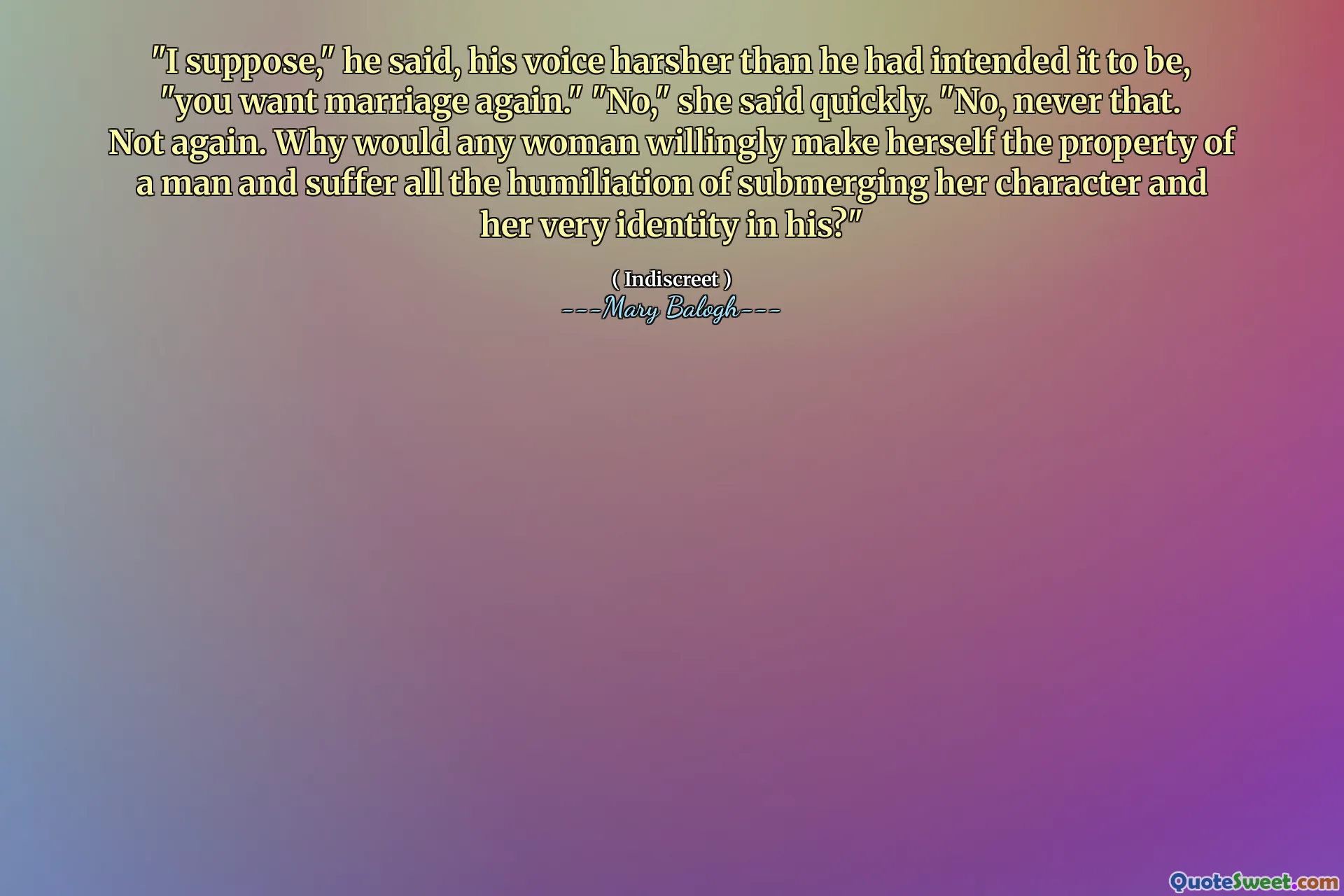
"I suppose," he said, his voice harsher than he had intended it to be, "you want marriage again." "No," she said quickly. "No, never that. Not again. Why would any woman willingly make herself the property of a man and suffer all the humiliation of submerging her character and her very identity in his?"
This quote speaks volumes about gender roles, autonomy, and societal expectations, especially from a woman's perspective. The woman's prompt and definitive rejection of marriage reflects a deep-seated disillusionment and a critique of traditional matrimonial institutions. She views marriage not as a partnership of equals, but as a system where a woman sacrifices her identity and becomes subordinated, effectively losing her autonomy and individuality. This contention draws attention to the historical reality many women have faced, where marriage legally and socially diminished their personhood and enforced dependency.
Her response also implicitly questions the societal norms that perpetuate such dynamics. By asking why any woman would willingly subject herself to that fate again, the statement challenges the acceptance and validation of institutional practices that diminish a person's worth and selfhood. It hints at the pain and humiliation endured by many, suggesting that marriage is not a joyous or freeing union but one fraught with compromise to one's essential self.
Moreover, there is an emotional undertone signaling past hurt or trauma where the speaker's reluctance stems from lived experience. This trauma adds weight and urgency to her declaration, suggesting that some social constructs can have lasting negative psychological impacts.
In modern contexts, the quote can serve as a reminder of how far we’ve come in advocating for equality and individual rights while still acknowledging areas where traditional roles persist. It urges readers to rethink the norms that frame relationships and consider the importance of preserving one's identity within any partnership.






